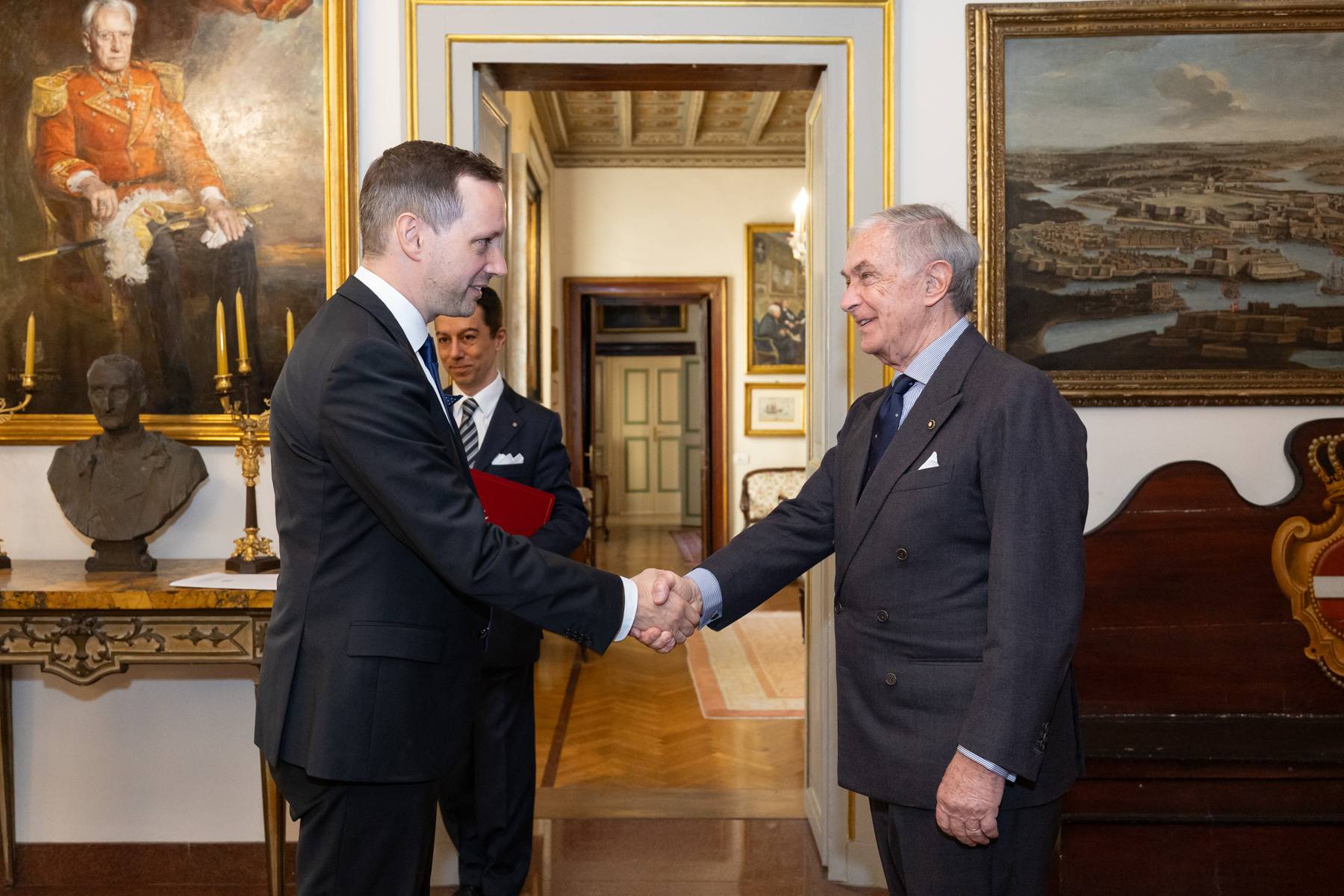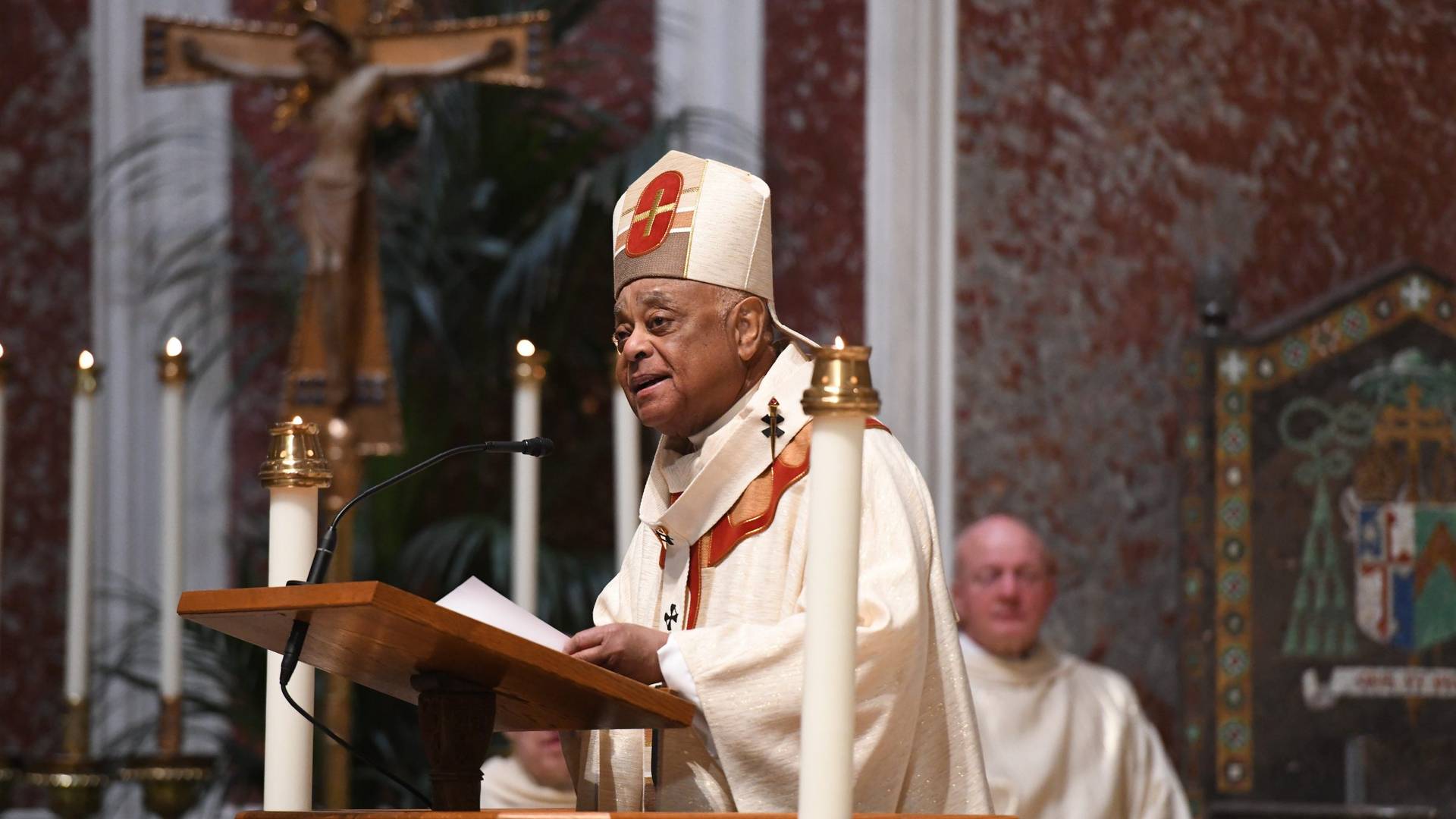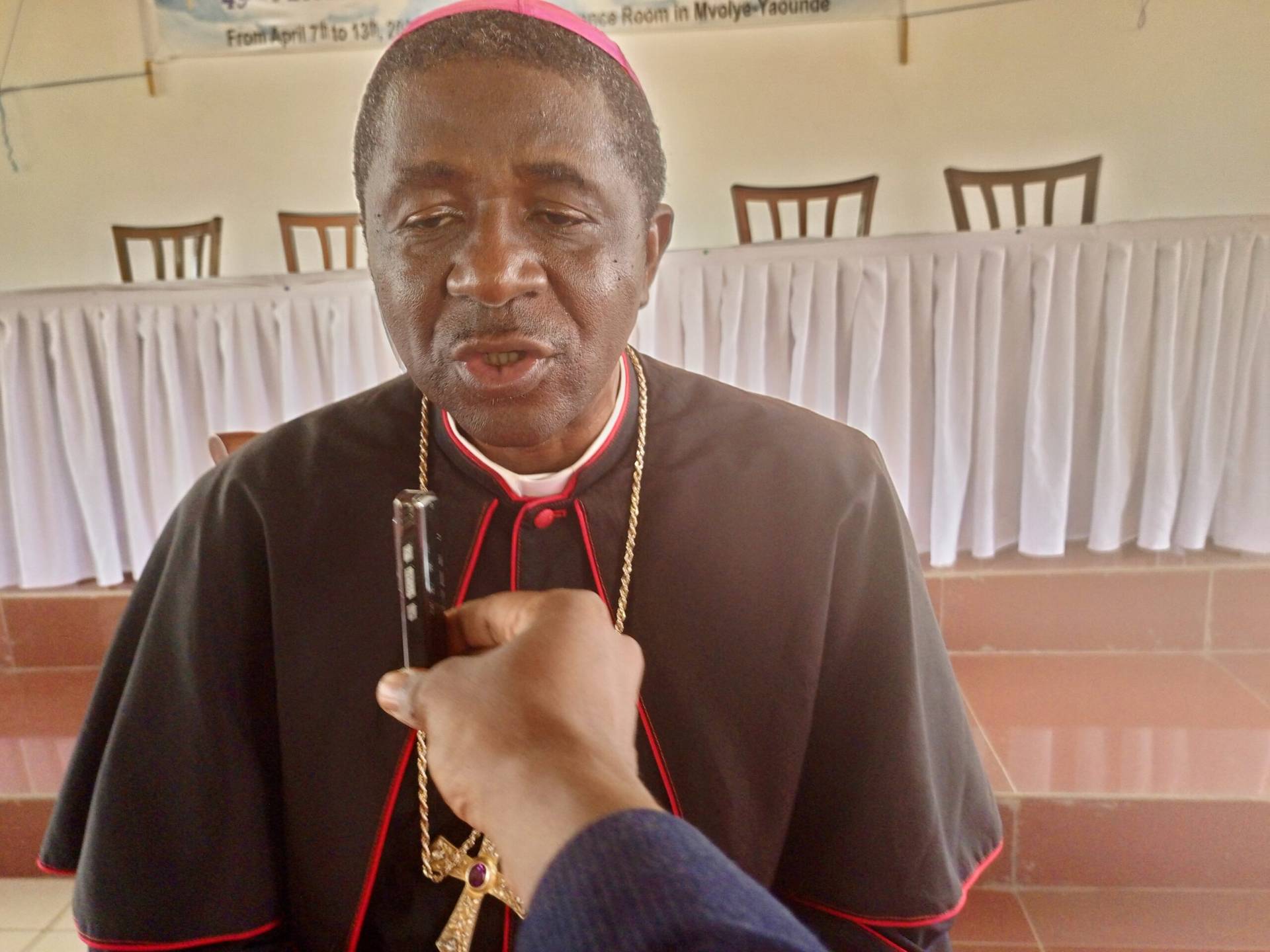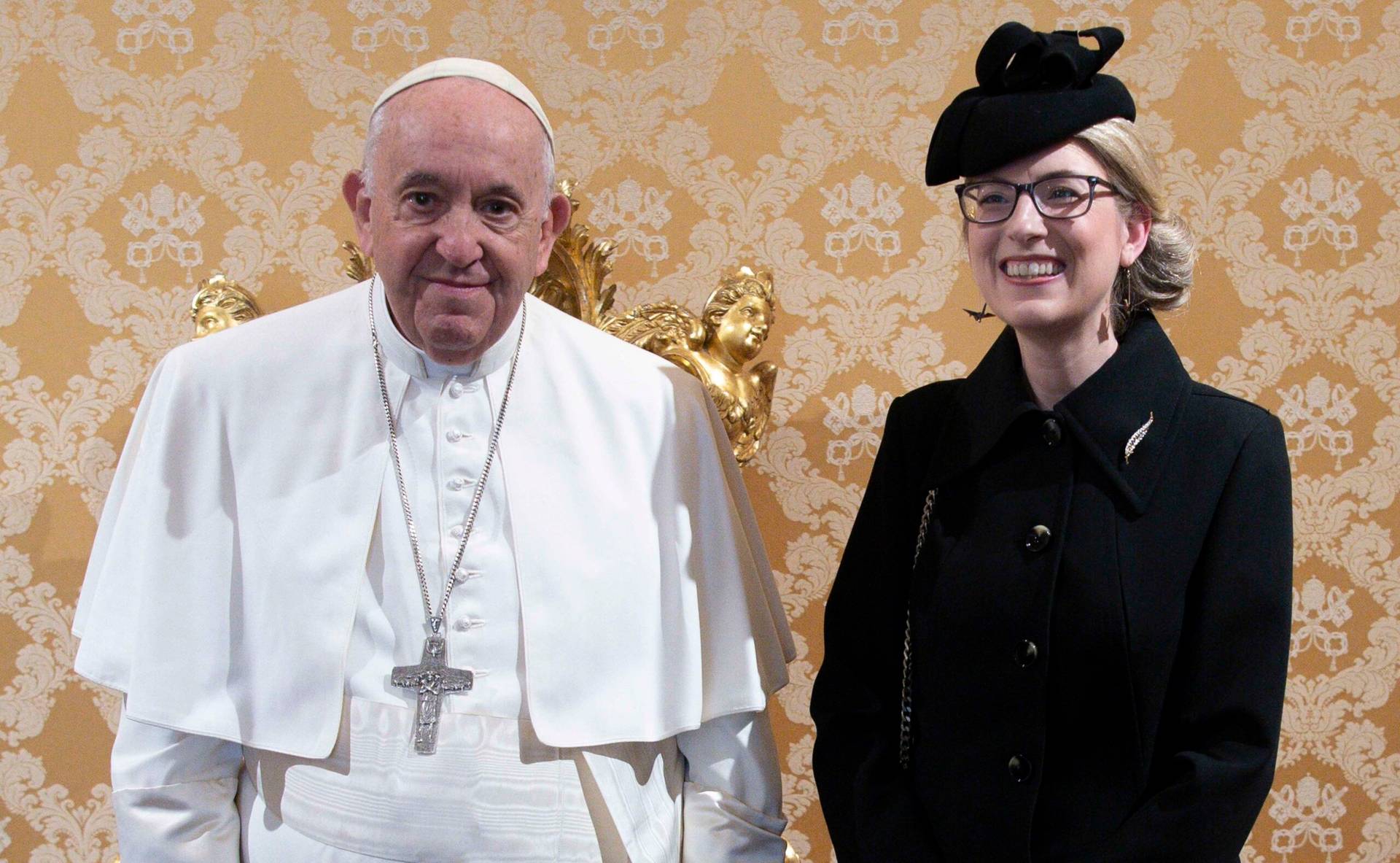ORLANDO, Florida — By both instinct and formation, Archbishop José Gómez of Los Angeles isn’t a man given to public displays of emotion. Born to middle class parents in Monterrey, Mexico, he trained as an accountant and even joined the Catholic group Opus Dei, whose members are usually noted more for sobriety and restraint than great fits of enthusiasm.
Yet in a Crux interview on July 2, Gómez found himself on the brink of tears discussing the impact of deportations of undocumented immigrants.
“Deportation destroys families, and the family is the basic structure of society,” said Gómez, who’s called for an immediate halt to deportations. “The suffering of children losing their parents is devastating.”
Asked if he’d witnessed that devastation with his own eyes, Gómez began to choke up.
“In the Archdiocese of Los Angeles, many times children don’t want to go to the Catholic schools because they think that their parents are not going to be home in the evening. They really suffer,” he said.
“In a few cases, I have been able to talk to kids who’ve lost their parents, and it’s devastating for them,” Gómez said. “To anybody, to lose your mother or father because they have no papers, it’s very painful, and it can even destroy society.”
The leader of the largest diocese in America by population argued that it’s long past time to pass an immigration reform measure that contains a pathway to legalization.
“We have eleven million undocumented people in this country, so let’s find a way that they’re able to continue participating in it,” he said. “I understand that people are afraid sometimes because [immigrant] people have committed crimes or things like that, but let’s find a solution. No matter what, people are still going to be moving.”
Gómez spoke to Crux during the “Convocation of Catholic Leaders,” a summit of almost 3,500 bishops, clergy, religious and laity staged July 1-4 in Orlando, Florida.
On other matters, Gómez said:
- The ethnic transformation of the American church requires flexibility from everyone. He described the situation this way: “‘You have two Nigerian couples come to your parish, you welcome them, you receive them. You have a hundred coming,” he said, and people get nervous because “they change your parish.”
- The lack of Latino/a voices in major Catholic debates such as the back-and-forth over Pope Francis’s document on the family, Amoris Laetitia, isn’t because they’re not interested, he said, but because for the most part they haven’t been empowered to join the conversation. In that part, he said, that’s because leadership positions in the Church generally require graduate education and often don’t offer competitive salaries, making them unattractive for people whose immediate concern in stabilizing their family.
- He attributes an uptick in vocations to the priesthood and consecrated life in Los Angeles partly to the impact of Pope Francis. “I think it’s because Pope Francis really portrays to the young people the need for serving others, and making a difference in the world, just going out, listening to people and caring about people,” he said.
- Gómez said he struggles not to be subsumed by the logistical requirements of managing such a sprawling archdiocese. “I think the answer is to give priority to my prayer life, my spiritual life, and then to ministry,” he said. “It’s a challenge, because the administrative demands are so big and immediate.”
The following are excerpts from Crux’s conversation with Gómez.
Crux: The spirit of this convocation is to bring together the Catholic Church in the U.S in all of its diversity. One form that diversity takes is the growing Latino/a presence. You move between the Anglo world and the Hispanic one, so what differences do you find in terms of pastoral priorities?
Gómez: I think the first thing we need to keep in mind, as was just said at the gathering this morning, is that we all are the Catholic Church. It’s not just that the Church is concerned about the Latinos or the African-Americans, or women, or whatever. We are the Church. In that sense, the universality of the Church is becoming more obvious in the United States.
On the other hand, the participation of these different groups in the life of the Church can be a challenge. It’s funny how we like our own people, and our own way of worshiping. One of the comments I heard this morning was: ‘You have two Nigerian couples come to your parish, you welcome them, you receive them. You have a hundred coming …’
People get nervous?
Right, because they change your parish. We need to accept those cultural differences, be open to them and integrate them in the reality of the life of the parish. Because, particularly in the United States, the whole Church is centered on parish life.
In my background, I have my mother who grew up in San Antonio, Texas, so she was used to the American way of doing things. I have my father who was from Mexico, and lived his entire life in Mexico, so it’s helped me to do this. Besides, I have my training as a priest of Opus Dei, which has also helped me because when I went to the seminary in Rome, there were people from all over the world, and you learned how to deal with different cultures and different kinds of worship.
To the extent that you pick up ideological tensions as you move around, does that tend to come more from the established Anglo community and not so much the others?
I think that the biggest challenge we have is that these ethnic communities are not in positions of leadership in the Catholic Church in the United States. Think about the conference of bishops. As you know, I’ve had the blessing of the U.S. conference of bishops electing me vice-president. I’m the first Latino vice-president in the conference in 100 years.
And the Latino imprint here is not insignificant …
But you look at the number of [Latino] people who are in positions of leadership in the USCCB offices, in the dioceses, and there are just a few. You can think of Filipinos, African Americans, there are also just a few people. One of the things we need to understand, is that we need to find a way to put these communities in positions of leadership in the Church.
It’s gotta help that we have a Latino as pope…
I know! But in order to be in a position of leadership in the Church in the U.S., you need to have a Master’s degree, [and] you have to have a solid economic position because the salaries are not that good. There are many factors, and obviously for Latinos, African-Americans, or immigrants coming from other countries, their first priority is taking care of their families, because financially they’re not stable.
Are you saying that we need some empowerment program to promote more diverse leadership in the Church in America?
Absolutely. When I was the Archbishop of San Antonio, we made what used to be the Mexican American Cultural Center into the Mexican American Catholic College, and the idea is to have a place where the Latinos can come and get a degree. The plan is to have it bilingual, so that they’re able to speak both languages when they finish the program.
They have a Master’s degree, so they can get a job at the diocese wherever they’re from. That’s kind of a way of facilitating them to be able to have the academic degree and the possibility to be a part of the structural Church in the United States.
It’s difficult for Latinos because, as you know, the Church in Latin America, or even on other continents, is basically one of volunteers. In the Church in the United States, there are probably millions of volunteers, but still, there’s a large professional class.
Your point is that it’s not that Hispanics and other minority groups aren’t interested in some of the conversations going on, it’s that they haven’t been empowered to take part?
It’s correct. That is my perception of what is happening.
You’ve been one of the most outspoken members of the conference on the immigration issue, which is completely understandable given your history and where you are. The last time we spoke, it was the beginning of the Trump administration, and there were already some worrying signals in terms of where things might be going. You told us then that there was a ‘climate of fear’ among people. Has it gotten better, worse, or where are we right now?
I think it’s a little diminished by the reality of what is happening in our country. Some of those executive orders, are still there, but at the same time, the federal immigration police hasn’t been able to go door-to-door looking for people. But, that’s a danger, and people are still afraid.
People need to understand that we need to find a way that Congress starts doing immigration reform. If not, sooner or later, those executive orders that make everyone who doesn’t have papers a criminal, is going to cause suffering.
As you know, I’ve been asking our government to stop deportations. It’s not happening, and I don’t think it’s going to happen any time soon. But I think we all need to understand that we live in a country that is based on laws, and the only way that we can assure immigrants that they can continue to live in our country and be active participants in the life of our country, is to insist to our government, elected officials, to adopt some immigration reform now. That’s what the country needs.
We have eleven million undocumented people in this country, so let’s find a way that they’re able to continue participating in it. I understand that people are afraid sometimes because [immigrant] people have committed crimes or things like that, but let’s find a solution. No matter what, people are still going to be moving. I think that everybody in our country, including elected officials, needs to understand that we need an immigration reform.
I think it’s very important for Catholics to understand the theology and spirituality of immigration, of the movements of peoples. Pope Francis is a beautiful example for all of us to understand, and that’s part of our Holy Church. Just think about the Holy Family. So we need to understand the theology and spirituality of immigration, and help our elected officials to start some kind of immigration reform now.
Why do you think it’s so critically important to halt the deportation of people?
Because deportation destroys families. And family is the basic structure of society. The suffering of children losing their parents is devastating.
I presume you’ve seen this with your own eyes?
Absolutely. In the Archdiocese of Los Angeles, many times children don’t want to go to the Catholic schools because they think that their parents are not going to be home in the evening. They really suffer.
In a few cases, I have been able to talk to kids who’ve lost their parents, and it’s devastating for them. To anybody, to lose your mother or father because they have no papers, it’s very painful, and it can even destroy society.
And it’s fundamentally inhuman?
That is correct. I think it’s important for us to keep thinking about it, to find a way to stop the deportations.
Next year, in March, we’ll be celebrating the fifth anniversary of the election of Pope Francis. Where were you when he was elected?
I was home, in Los Angeles, celebrating the noon Mass in the Cathedral. They told me Cardinal [Jorge Mario] Bergoglio was elected the new pope, so we prayed for him at the Mass.
In the lead-up to that big anniversary. Do you see a Francis effect in your own backyard of Los Angeles?
I do. I think, on the one hand, I see it in vocations to the priesthood and consecrated life. At least in Los Angeles, we’ve seen a beautiful increase, and I think it’s because Pope Francis really portrays to the young people the need for serving others, and making a difference in the world, just going out, listening to people and caring about people.
Also, especially in the missionary work of the Church, in social services, you can see how people in the parishes are more excited about doing more service to other people. With the St. Vincent de Paul Society, Catholic Charities, and to the ministries that every parish has. It’s beautiful to see how many more people are really excited about the works of mercy.
I think that the whole concept of the Holy Year of Mercy, and Pope Francis asking us to be disciples of mercy, is being taken by the people of Los Angeles in a very beautiful way.
By population, L.A. is the largest population in the country, one of the largest in the world, in excess of five million people. How do you not get subsumed by the administrative demands of your job?
That’s a good question. I think the answer is to give priority to my prayer life, my spiritual life, and then to ministry. It’s a challenge, because as you said, the administrative demands are so big and immediate. But we have a good team, and we’re working together. That’s my struggle every day, to ensure that I dedicate time to my prayer life, to my parish life. I try to go to schools several times every week, so I can be with people. What I enjoy most is my ministry.
As you know, I went to school, I’m an accountant, but after that I decided to go to the seminary. It’s a struggle, but I have a lot of wonderful people helping me in the archdiocese and in the regions. We were able to put together a good team to take care of the administrative and pastoral sides of things.
I’m working on it, but it’s always a challenge.













